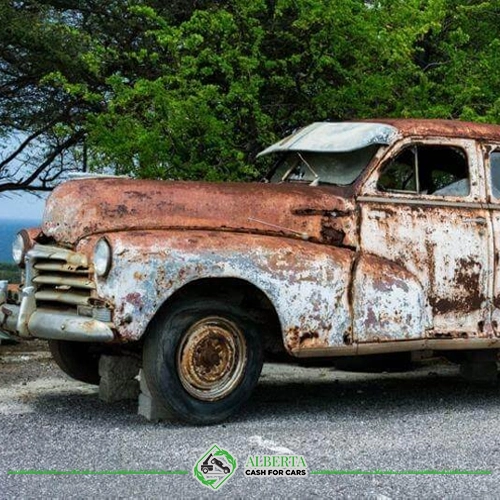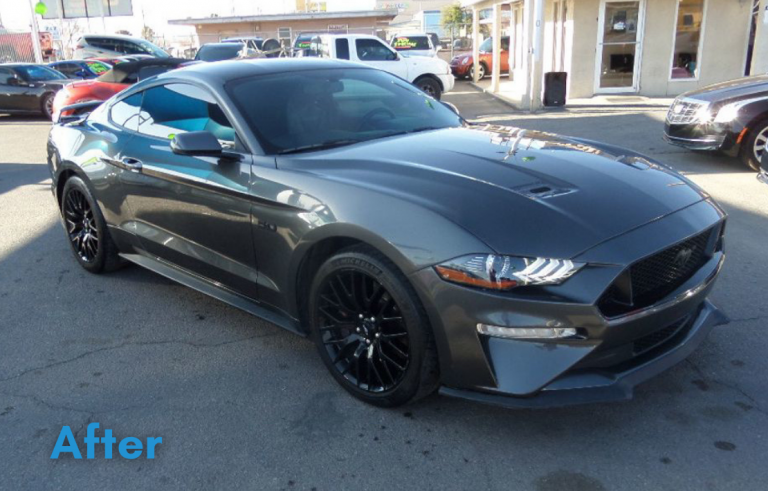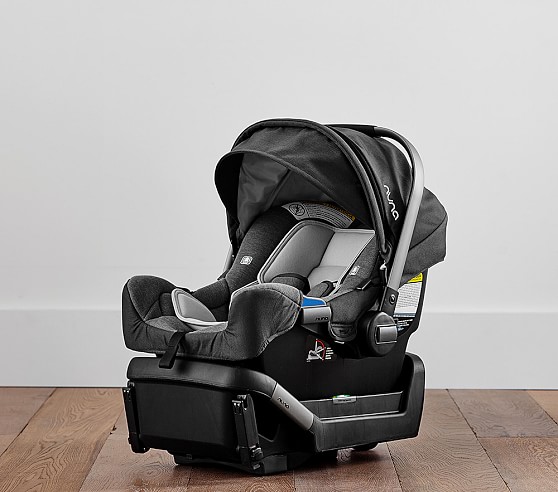Branded Title Cars: Unlocking the Mystery and Maximizing Your Value
Branded Title Cars: Unlocking the Mystery and Maximizing Your Value cars.truckstrend.com
In the vast landscape of car buying, the term "branded title" often evokes a sense of caution, if not outright alarm. For many, it’s a red flag, an immediate deterrent to what might otherwise seem like an attractive deal. However, for the informed consumer, a branded title isn’t necessarily a deal-breaker, but rather an indicator that demands a deeper dive into a vehicle’s history. Understanding branded title cars is not just about avoiding potential pitfalls; it’s about recognizing unique opportunities, navigating complex processes, and ultimately, making a smarter, more informed purchase.
This comprehensive guide aims to demystify branded title cars, providing you with the knowledge to approach them with confidence, whether you’re a first-time buyer or a seasoned automotive enthusiast. We’ll explore what these titles mean, the different types you might encounter, the pros and cons of ownership, and crucial steps to take before making a decision.
Branded Title Cars: Unlocking the Mystery and Maximizing Your Value
What is a Branded Title? Deconstructing the Concept
At its core, a branded title is a designation stamped on a vehicle’s ownership document (the title) by a state Department of Motor Vehicles (DMV) to indicate a significant event in the vehicle’s past. Unlike a "clean" or "clear" title, which implies a relatively uneventful history, a branded title serves as a permanent public record of damage, defect, or unusual circumstances that may affect the vehicle’s safety, value, or usability.
The primary purpose of branding a title is consumer protection. It forces transparency, ensuring that potential buyers are aware of a vehicle’s history before they commit to a purchase. Without such a system, a severely damaged car could be cosmetically repaired and sold as if it had no prior issues, endangering buyers and defrauding them financially.
Common Types of Branded Titles
The specific branding on a title can vary by state, but several common types indicate different histories and levels of concern:
- Salvage This is perhaps the most well-known branded title. A vehicle is declared "salvage" when an insurance company deems it a "total loss" due to damage from an accident, flood, fire, theft, or vandalism. A total loss means the cost of repairs exceeds a certain percentage (often 75-100%) of the vehicle’s pre-damage market value. A salvage titled car cannot be legally driven on public roads until it undergoes significant repairs and passes a rigorous inspection.
- Rebuilt/Reconstructed Once a salvage vehicle has been professionally repaired and inspected by the state to confirm it’s roadworthy and safe, its title is often changed to "rebuilt" or "reconstructed." This indicates that the vehicle was once salvage but has since been made legal for operation. While better than salvage, it still carries the stigma and implications of its past.
- Flood Specifically assigned to vehicles that have sustained significant water damage, often from floods. Even if the damage doesn’t meet the "total loss" threshold for a salvage title, water can cause insidious long-term electrical, mechanical, and rust issues that are difficult to detect and costly to repair.
- Lemon This brand indicates that a vehicle was repurchased by the manufacturer due to persistent, unfixable defects under state "lemon laws." These laws protect consumers who buy vehicles with serious, recurring problems that impair their use, value, or safety, despite repeated attempts at repair by the dealer.
- Odometer Rollback/Tampered This brand signifies that the vehicle’s odometer has been illegally altered to show fewer miles than it has actually traveled. This is a serious felony and often involves sophisticated criminal activity. Such a title makes the car’s true mileage uncertain and its value highly questionable.
- Junk/Scrap A vehicle with a junk or scrap title is typically considered beyond repair and is intended only for parts or crushing. It cannot be legally registered or driven on public roads ever again.
- Hail Damage In areas prone to severe hail, vehicles can suffer extensive cosmetic damage (dents, broken glass) that may not impair functionality but significantly reduces value. While not always a "total loss," some states brand titles for substantial hail damage to inform future buyers.


Why Do Branded Titles Exist? The Rationale Behind the Brand
The existence of branded titles is rooted in several key motivations:
- Consumer Protection: The primary driver. It ensures buyers are fully aware of a vehicle’s potentially problematic past, preventing fraud and allowing them to make informed decisions about its safety and value.
- Insurance Industry Standards: Insurance companies play a crucial role in declaring vehicles total losses, which initiates the branding process. This standardization helps them manage claims and track damaged vehicles.
- Public Safety: By requiring repairs and inspections for salvage vehicles before they can be retitled as "rebuilt," states aim to ensure that unsafe vehicles are not put back on the road.
- Fair Market Value: Branded titles inherently reduce a vehicle’s market value. This ensures that buyers pay a fair price for a car with a documented history of damage or defect, reflecting its potentially higher risk and lower longevity.

The Pros and Cons of Buying a Branded Title Car
Deciding whether to purchase a branded title car requires a careful weighing of the potential benefits against the significant risks.
Pros:
- Significant Cost Savings: This is by far the biggest draw. Branded title cars are often sold at a substantial discount, typically 20-50% or more, compared to their clean-title counterparts. For budget-conscious buyers, this can make an otherwise unaffordable vehicle accessible.
- Potential for Good Value: If the repairs were done correctly and professionally, and the underlying damage was not catastrophic (e.g., minor collision that totaled a newer car due to expensive parts), a branded title car can represent excellent value for money.
- Opportunity for Savvy Buyers/Mechanics: Individuals with mechanical knowledge or access to reliable, affordable repair services might find these cars to be profitable projects or reliable daily drivers at a fraction of the cost.
Cons:
- Difficulty in Obtaining Financing: Many traditional lenders and banks are unwilling to finance branded title cars due to their reduced collateral value and higher risk. If financing is available, it often comes with higher interest rates and stricter terms.
- Challenges with Insurance: While it’s usually possible to get liability insurance, obtaining comprehensive or collision coverage can be difficult or significantly more expensive. Insurers may also dispute the vehicle’s value in the event of a future claim.
- Lower Resale Value: The moment a car receives a branded title, its resale value drops permanently. Expect to sell it for significantly less than a clean-title equivalent, and finding a buyer may take longer.
- Potential for Hidden Problems: This is the greatest risk. Cosmetic repairs can mask underlying structural, electrical, or mechanical issues that could manifest later, leading to costly and unexpected repairs. Flood damage, in particular, can cause long-term, elusive electrical problems.
- Safety Concerns: If repairs were shoddily done or corners were cut, the vehicle’s structural integrity or safety systems (airbags, crumple zones) might be compromised, putting occupants at risk.
- Inspection Complexity: Properly evaluating a branded title car requires an extremely thorough inspection, often beyond what a standard pre-purchase inspection covers.
- Disclosure Requirements: When you eventually sell the car, you are legally and ethically obligated to disclose its branded title status to the buyer.
Navigating the Purchase: A Step-by-Step Guide for Buyers
If you’re considering a branded title car, diligence is paramount. Follow these steps to mitigate risks and make an informed decision:
- Thorough Research: Understand the specific brand on the title. A "rebuilt" title from a minor fender bender is different from a "flood" title or a "lemon" title.
- Get a Vehicle History Report (VHR): Services like CarFax and AutoCheck are indispensable. These reports will confirm the branded title, detail the events that led to it (e.g., accident reports, flood damage), list previous owners, and often show service history. Look for consistency and details about the damage.
- Mandatory Pre-Purchase Inspection (PPI) by an Independent Mechanic: This is the most crucial step. Do not skip it. Find a reputable, independent mechanic specializing in the vehicle’s make and model. Crucially, inform them the car has a branded title and ask them to focus specifically on the areas related to the branding (e.g., if it was a collision, inspect structural integrity; if flood, check electrical systems, corrosion). A good mechanic can spot shoddy repairs or lingering issues.
- Understand State Laws: Research your state’s specific requirements for branded titles, particularly for "rebuilt" vehicles. Some states have more stringent inspection processes than others.
- Obtain Financing and Insurance Quotes Before Buying: Contact your insurance provider and potential lenders. Be upfront about the branded title. Get firm quotes for both insurance premiums and loan terms. You might find that the savings on the purchase price are offset by higher ongoing costs or that coverage is simply unavailable.
- Negotiate Aggressively: The branded title significantly devalues the vehicle. Use this to your advantage. Be prepared to walk away if the seller isn’t willing to offer a substantial discount.
- Review Repair Documentation: If the car is "rebuilt," ask for all repair receipts and documentation from the shop that performed the work. Professional shops will often provide detailed invoices of parts replaced and labor performed.
- Keep Meticulous Records: Once purchased, keep all documents related to the car’s history, repairs, and inspections. This will be invaluable if you ever decide to sell it.
Selling a Branded Title Car: What You Need to Know
Selling a branded title car presents its own set of challenges, primarily revolving around disclosure and market perception.
- Disclosure is Key: Legally and ethically, you must disclose the branded title to any potential buyer. Failure to do so can lead to lawsuits for fraud or misrepresentation. Be transparent about the vehicle’s history, the nature of the damage, and the repairs undertaken.
- Expect Lower Offers: Just as you bought it at a discount, you will sell it at one. Buyers will factor in the branded title, the difficulty of financing, and their own resale concerns.
- Provide All Documentation: Present all your repair receipts, pre-purchase inspection reports, and vehicle history reports. This transparency can build trust and reassure buyers that the car has been properly maintained since its branding event.
- Be Patient: It may take longer to find a buyer for a branded title car compared to a clean-title vehicle. Target buyers who are knowledgeable about cars, perhaps mechanics or those looking for a project.
Branded Title Car Price Guide (Typical Discount Ranges)
It’s impossible to give exact prices for branded title cars, as market value depends on make, model, year, mileage, condition, and the specifics of the damage. However, we can provide a guide to typical discount ranges you might expect compared to an identical clean-title vehicle. These are estimates and can vary widely.
| Type of Branded Title | Description | Typical Discount Range (vs. Clean Title) | Key Considerations for Buyer |
|---|---|---|---|
| Salvage | Declared total loss; cannot be driven until repaired and inspected. | 50-80% | Not for the faint of heart. Requires extensive repairs and state inspection to become "rebuilt." Primarily for mechanics or those looking for parts. Cannot be insured or registered as-is. High risk. |
| Rebuilt/Reconstructed | Formerly salvage; repaired and inspected, deemed roadworthy. | 25-50% | Best opportunity for value. Requires thorough PPI focused on the original damage cause and quality of repairs. Get all repair documentation. Insurance/financing can still be challenging but more feasible than salvage. Resale value will be significantly impacted. |
| Flood | Significant water damage; often insidious electrical/rust issues. | 30-60% | High Risk. Water damage often causes long-term, unpredictable electrical failures and rust. Even if repaired, hidden issues can surface later. Extreme caution and specialized inspection (electrical, corrosion) are required. Insurance/financing very difficult. |
| Lemon | Repurchased by manufacturer due to unresolved defects under "lemon law." | 20-40% | Moderate to High Risk. The underlying defect might be fixed, but the history indicates persistent issues. Research the specific defect and check if the manufacturer issued recalls or fixes. Understand what caused the "lemon" designation. May have extended warranty issues or be excluded from future recalls depending on manufacturer policy. |
| Odometer Rollback | Mileage illegally altered. | 40-70% | Avoid unless verifiable proof of true mileage exists. This indicates fraud. The actual mileage is unknown, making maintenance schedules, wear, and value impossible to determine accurately. Difficult to insure or sell. |
| Hail Damage | Extensive cosmetic damage from hail; often not a total loss. | 15-30% | Lower Risk. Primarily cosmetic, but check for broken glass, water leaks, and potential structural issues if severe. Repairs can be costly. Often a good candidate for savings if the damage is truly superficial and doesn’t bother you. Resale impact depends on severity and visibility of damage. |
| Junk/Scrap | Beyond repair; only for parts or crushing. | 80-95% (essentially parts value) | Not a drivable car. Only for parts. Cannot be registered or driven. |
Note: These are general estimates. The actual discount will depend heavily on the specific vehicle, the extent and nature of the damage, the quality of repairs, and market demand.
Frequently Asked Questions (FAQ)
Q1: Can I get insurance on a branded title car?
A1: Yes, but it can be challenging. Most insurers will offer liability coverage. Comprehensive and collision coverage might be difficult to obtain or come with significantly higher premiums and a lower agreed-upon value in case of a future claim. Always get insurance quotes before purchasing.
Q2: Can I finance a branded title car?
A2: It’s difficult. Many traditional banks and credit unions are reluctant to finance branded title vehicles due to their reduced collateral value and higher risk. You might need to seek out specialized lenders, often at higher interest rates, or pay with cash.
Q3: Is a branded title car safe to drive?
A3: It depends entirely on the type of brand and the quality of repairs. A "rebuilt" car that passed a rigorous state inspection after professional repairs could be perfectly safe. However, a car with hidden flood damage or poorly repaired structural issues could be very unsafe. A comprehensive pre-purchase inspection by an expert is crucial.
Q4: How do I know if a car has a branded title?
A4: The most reliable way is to obtain a Vehicle History Report (VHR) from services like CarFax or AutoCheck. You should also physically inspect the vehicle’s title document, as the brand will be clearly stamped on it. If a seller refuses to provide a VHR or show you the title, walk away.
Q5: Is it always a bad idea to buy a branded title car?
A5: Not necessarily. For a knowledgeable and diligent buyer with realistic expectations, a branded title car can be an excellent way to acquire a vehicle at a significant discount. The key is thorough research, a detailed independent inspection, and understanding the implications for financing, insurance, and future resale.
Q6: What’s the difference between a "salvage" and a "rebuilt" title?
A6: A salvage title means the vehicle was declared a total loss and is not roadworthy. It cannot be legally registered or driven. A rebuilt title means that a vehicle that was once salvage has undergone repairs, passed a state inspection, and is now deemed roadworthy and safe for use on public roads.
Conclusion
Branded title cars are a double-edged sword. On one hand, they offer the tantalizing prospect of significant savings, making otherwise out-of-reach vehicles attainable. On the other, they carry inherent risks, ranging from hidden mechanical issues to challenges with financing and insurance.
The decision to purchase a branded title car should never be made lightly or impulsively. It requires meticulous research, a thorough understanding of the specific brand, and, most importantly, a comprehensive pre-purchase inspection by an independent, trusted mechanic. For the informed, diligent, and pragmatic buyer, a branded title car can indeed be a smart financial move, a testament to value found where others only see a warning. However, for those seeking a straightforward, hassle-free ownership experience, the complexities of a branded title might outweigh the initial savings. Ultimately, knowledge is your most powerful tool in navigating the world of branded title cars, empowering you to make a choice that aligns with your needs, budget, and risk tolerance.






